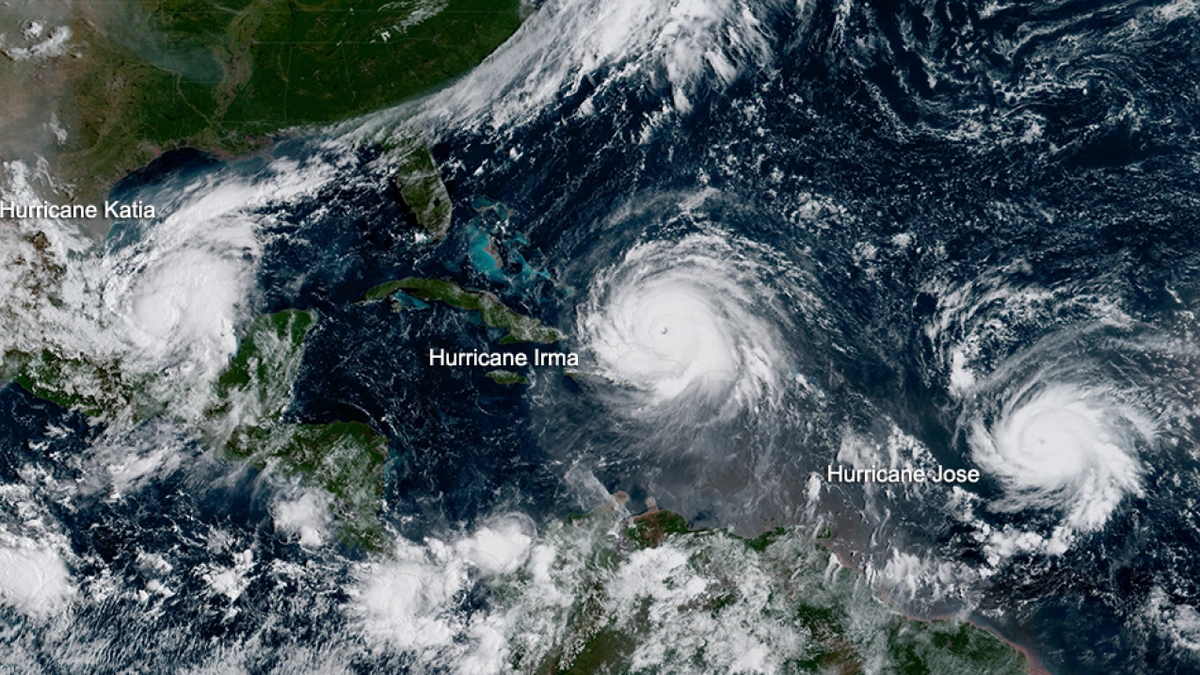Okay, let’s be real. Atlantic hurricanes can seem like a distant problem if you’re not living right on the coast. Maybe you think, “That’s a Florida problem,” or “I’m safe up here in Ohio.” But here’s the thing: these storms have far-reaching consequences that touch everyone, even if indirectly.
What fascinates me is the interconnectedness of it all. It’s not just about wind and rain; it’s about economics, climate change, and even your grocery bill. So, let’s dive into why these storms matter, no matter where you call home.
The Ripple Effect | How Hurricanes Impact Everyone

The immediate impact of hurricane season is clear: devastation along the coastline. But the economic damage extends far beyond that. Think about it. Ports shut down, disrupting supply chains. Agricultural regions get hammered, leading to increased food prices nationwide. Tourist destinations suffer, impacting the leisure industry. And then there’s the insurance industry. Major hurricanes can cause insurance rate hikes across the board, even for those nowhere near the coast.
And, it’s not just about money. Displaced populations can put a strain on resources in inland communities, impacting everything from housing to social services. It’s a complex web, and we’re all connected. The intensity of major hurricanes is also a key factor to consider.
The Climate Connection | Are Hurricanes Getting Worse?
Here’s where things get a bit more complicated. Are Atlantic hurricanes getting worse because of climate change? The short answer is: probably, yes. Scientists are still working to fully understand the nuances, but the general consensus is that warmer ocean temperatures fuel stronger, wetter storms. The Environmental Protection Agency , for example, highlights a trend towards increased intensity.
I initially thought this was straightforward, but then I realized the debate is about how much worse. Some studies suggest a significant increase in the frequency of major hurricanes, while others point to a more subtle shift in intensity and rainfall. Let me rephrase that for clarity: the science is evolving, but the trend is concerning.
Consider also how coastal erosion plays a significant role. Rising sea levels exacerbate the impact of storm surges, making coastal communities more vulnerable.
Beyond the Forecast | What Can We Actually Do?
Okay, so we know hurricane preparedness is crucial. But what does that actually mean beyond stocking up on bottled water and batteries? Well, it starts with understanding your local risks. Are you in a flood zone? What’s your evacuation plan? It may also mean that you need to consider flood insurance.
A common mistake I see people make is thinking they can ride out a major storm. Let’s be honest; that’s rarely a good idea. Heeding evacuation orders isn’t a sign of weakness; it’s a sign of intelligence. Furthermore, advocating for policies that support climate resilience, such as investing in infrastructure that can withstand extreme weather, is critical. You might be surprised that climate change is impacting regions you had not even thought about.
The Role of Technology in Hurricane Prediction and Response
What fascinates me is how technology is changing the game. Sophisticated weather models are allowing us to predict the path and intensity of storms with greater accuracy. Improved communication systems are enabling faster and more effective warnings. And innovative building techniques are creating structures that are more resilient to hurricane-force winds.
But technology is not a panacea. It needs to be combined with sound planning, community engagement, and a willingness to learn from past mistakes. A common mistake I see is relying too heavily on forecasts without understanding their limitations. Weather models are constantly improving, but they are not perfect. As such, relying too heavily on forecasts without a solid understanding of its limitations can be dangerous. The one thing you absolutely must double-check is your evacuation route – are there multiple routes available, or is there a single vulnerable path?
The impact from hurricane damage can be devastating. In addition, being aware of the most active hurricane season is extremely important.
Atlantic Hurricanes FAQs
What if I live far inland? Why should I care about Atlantic hurricanes?
Hurricanes disrupt supply chains, impacting food prices and availability nationwide. They can also lead to increased insurance rates and strain resources due to displaced populations.
Are Atlantic hurricanes getting worse due to climate change?
The general consensus is that warmer ocean temperatures are fueling stronger, wetter storms. However, the extent of the increase is still being studied.
What does “hurricane preparedness” actually mean?
It means understanding your local risks, having an evacuation plan, considering flood insurance, and heeding evacuation orders.
Where can I find reliable information about hurricane forecasts?
The National Hurricane Center ( NHC ) is the official source for hurricane forecasts and warnings.
What is storm surge?
Storm surge is the abnormal rise in seawater level during a storm, primarily caused by the storm’s winds pushing water ashore.
How can I help after a hurricane?
Donate to reputable charities, volunteer your time, and support businesses in affected communities.
So, the next time you hear about an Atlantic hurricane, remember it’s not just a coastal problem. It’s a shared challenge that demands our attention, understanding, and collective action. This way, we can be better prepared for future coastal storms .




